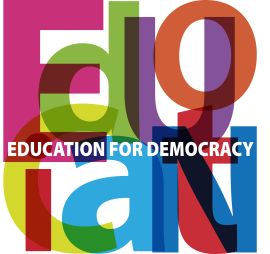A pivotal expert meeting took place on 21-22 February in Belgrade as part of the joint European Union and Council of Europe action “Quality education for all”, focusing on further improving educational standards in Serbia. The event, specifically targeting higher education institutions, focused on introducing the Reference Framework of Competences for Democratic Culture (RFCDC) into the Serbian higher education system.
The meeting was opened by Nadia Ćuk, Deputy Head of Council of Europe Office in Belgrade, who emphasised the broader societal role of education. “It is through education that we cultivate the values of tolerance, inclusivity, and respect for diversity—values that are fundamental to the promotion of human rights and the building of progressive, modern communities”, she said.
Joining her, Anamarija Viček, State Secretary in the Ministry of Education and Vesna Atanasova from the Education Department of the Council of Europe, both stressed the importance of higher education in preparing critically aware educators who embody democratic values. Additionally, Mirjana Maksimović from the Delegation of the European Union thanked the Ministry of Education and the Council of Europe for their long-standing collaboration in promoting quality education in Serbia, underscoring the importance of partnerships in advancing educational standards.
Following the opening remarks, international experts from renowned universities such as Queen's University Belfast, the Catholic University of Valencia, the University of Barcelona, the University of Humanistic Studies Utrecht, Leeds Beckett University and the University of Helsinki, shared their experiences and insights on integrating RFCDC into higher education.
Day two witnessed vibrant discussions among the representatives from Serbian universities and international experts on adapting and implementing the presented strategies and practices within the Serbian educational context. Among the diverse perspectives and ideas exchanged were strategies such as aligning university policies with the values of the RFCDC, fostering diversity among university staff, incorporating research and education with a social purpose, actively engaging students with local communities, as well as courses integrating aspects of the RFCDC.
The event concluded with participants committing to applying the shared knowledge to strengthen the quality and inclusivity of higher education in Serbia. An international experts’ task force will be formed which will continue the work on the identified models as per the local needs.




